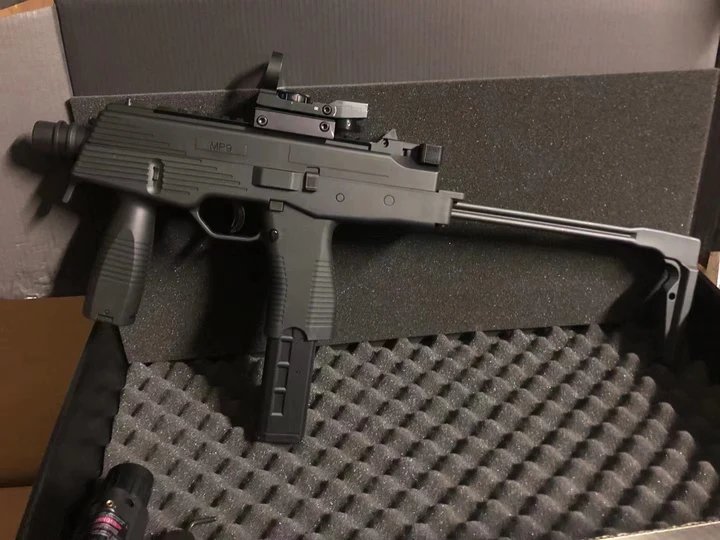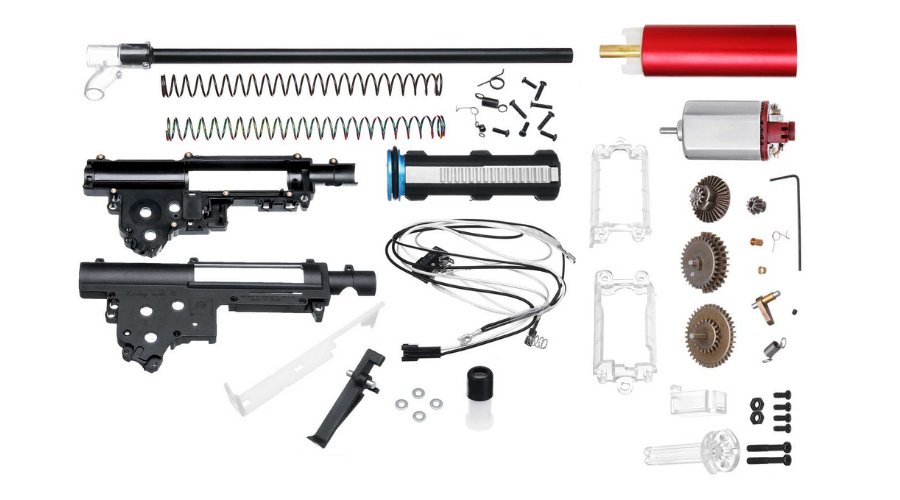Gel Blaster Maintenance Tips for Long-Term Use2024-03-01
Gel blasting has swiftly evolved from a niche hobby to a full-fledged adult pastime, where precision meets the excitement of tactical gameplay. As with any sport that involves equipment, maintenance is the cornerstone of performance and safety. For enthusiasts looking to keep their gel blasters in prime condition, understanding how to care for these devices can mean the difference between a stellar game day or a disappointing malfunction. This blog offers essential gel blaster maintenance tips that will ensure long-term use and enjoyment.
Inside Your Gel Blaster
Familiarizing yourself with the inner workings of gel blasters allows more informed maintenance and care.
1. Components and Functionality
Several key components enable gel blasters to successfully fire rounds down range:
● Magazine:Feeds spherical gel ball ammunition into position to load into the firing chamber. Maintaining clean tubes clears jams.
● Firing Mechanism: Launches gel balls via manual pump action, internal spring pistons, or rapid motorized electronic triggering. Cleaning varies across types.
● Power Source: Battery packs or compressed gas propellant canisters provide the energy transformed into velocity-propelling gel rounds towards targets. Preserve charge when stored.
● Inner Barrel and Spring: Guides gel smoothly aligning trajectories for distance and accuracy. Precision cleaning maintains clear pathways.
2. Types of Gel Blasters
While similar internally, gel blaster models tailor design factors optimizing unique tactical roles:
● Rifles: Longer inner barrels and wider mechanical firing components require specific tapered cleaning rods and brushes to access. Regular scrubbing maintains precision.
● Pistols: Compact form factors integrate components closely requiring routine detailed cleaning of intricate mechanisms without damage from overly abrasive brush bristles.Learn more info about pistol: The Guide to Choosing Your First Gel Blaster Pistol
● Electric: Maintaining battery health through careful recharging, avoiding full discharges and heat damage preserves longevity across repeated uses.
● Gas: Focus diligent o-ring, tank seal, and nozzle care sealing high-pressure propellant gases avoiding wasteful loss out of barrels or unsafe over-pressurization component failures.
Understanding functionality differences allows properly addressing maintenance needs keeping each style operating safely and effectively over years of play. Get more gel blaster info: Is M4A1 gel blaster good?

General Maintenance Tips
Post-Game Cleaning
● Clear all remaining gel balls from barrels and magazines with squeegees preventing future jams
● Gently wipe down exteriors with a damp microfiber cloth removing dirt, paint residue, and sweat building up on casings
● Use soft-bristle detail brushes reaching crevices needing special debris removal attention - ensure no lingering moisture remains
Secure Storage Between Battles
● Keep blasters locked in protective cases away from dust accumulation and direct sunlight fading exteriors over time
● Fully disconnect batteries and magazines from active weapon chambers preventing accidental discharge - invest in safe tactical storage bags
Inspecting for Issues
● Check firing functionality weekly - test sample shots listening for uneven velocity changes indicating potential issues
● Examine seals, O-rings, and barrel interiors under bright light looking for cracks or odd textures from unusual swelling or shrinkage
● Note dents along exterior metal and composite casings - apply touch-up paint to prevent further material penetration.
In-depth Rifle Maintenance
Rifles endure intense battles - mind components enabling competitive advantages.
Magazine Upkeep
● Disassemble magazines fully each month clearing any dried gel remnants stuck inside feed tubes causing potential jams
● Soak opened mag interior pieces for 15 minutes in hot water dissolving sticky residues followed by a full rinse and drying
● Listen for rattles when shaken - noise means leftover debris remains requiring more cleaning attention
Barrel Care
● Use a soft barrel snake cleaning tool weekly, gently swishing the fabric tip through the full barrel length lifting dirt and gel bits
● Carefully insert cotton swabs soaked in rubbing alcohol dissolving paint splatter rings developing inside wider openings
● Before competitions, shine a flashlight checking for light visibility through the muzzle - opaque darkness means more debris exists limiting optimal accuracy
Battery Best Practices
● Set electronic reminders to unplug batteries after standard play sessions maximizing long-term charge life
● Invest in quality lithium-ion cells from reputable manufacturers providing extended longevity
● Use a balance charger overnight nourishing strong current for next-day battle readiness without risk of fire overcharging damage.
Keeping Electric Pistols at Peak Performance
Hopper and Barrel Vigilance
● Dislodge jams using included unblocking rods so leftover gels never solidify permanently sealing firing pathways
● Monthly deep cleaning submerges the hopper and barrel detached from the frame in hot soapy water dissolving accumulation
Strategic Lubrication
● Oil key friction points like trigger hinges, chamber openings, and magazine wells using silicone lubricants to maintain smooth mechanical operations
● Reapply after heavy usage sessions - excessively sticky actions indicate the need
● Ensure no lubricant contacts circuit board components avoiding potential electrical shorts
Battery Best Practices
● Avoid full overnight charges protecting longevity - use smart chargers with auto shutoff upon signaled completion
● Label battery pairs dedicated for battle usage separating from practice sets spreading wear and tear even across inventory
● Carry backup cells in a protective case ready for quick hot-swapping when primary power fades.
Gas Pistol Specifics
Spring Servicing
● Replace recoil springs annually restoring snappy firing momentum lost stretching previous rounds
● Lubricate nozzle tips and o-rings biweekly using airsoft oil keeping the seal slick feeding next shots
Preventing Magazine Leaks
● Listen for audible hissing indicating air escapes through the mag well while gassing indicating leaks
● Mag wobble also signals issues - tighten retention screws resecuring connections
● Keep spare magazine o-ring sets on standby for quick replacements stopping costly mid-mag fuel loss
Lubricating Metals
● Apply silicone lubricant to slide rails and contacts allowing smooth cycling
● Oil-exposed valve knocker pistons allow unencumbered fuel intake with each cocking
● Buff and polish shiny exterior metals routinely preventing corrosion from sweat and grime.
Upgrade and Replacement Considerations
Balance costs against benefits determining smart investment opportunities.
1. Recognizing Upgrade Needs
Consistent issues like declining accuracy, slowing rate of fire, or leaking seals signal possibly underperforming parts warranting upgrades rather than mere repairs maintaining suboptimal functions. Analyze root causes before replacing them rather than merely addressing surface symptoms.
2. Vetting Quality Components
The marketplace offers endless third-party components, but meticulous vetting ensures valuable investments boosting performance over lackluster components failing prematurely.
● Read feedback on specialty forums identifying reputable brands recommended by fellow fanatics’ direct product experience
● Cross-reference retailer reviews confirming advertised specs deliver on claimed improvements
● Request sample installation walkthroughs from distributors proving product expertise guiding your customized upgrade
3. Confirming Compatibility
After identifying components offering compelling improvements, validate technical specifications that match your specific blaster model before purchase avoiding wasted buys. Consult experts guiding modifications like manufacturers or specialist technicians ensuring changes integrate into existing setups optimizing synergy between systems working harmoniously together and elevating your elite advantages.

When DIY Isn't Enough
Attempting modifications beyond skill levels risks damage - know when to engage experts.
1. Professional Assistance
Seeking professional expertise admits wisdom boundaries with inexperience. Specialty repair shops offer reliable servicing for complex issues like:
● Inconsistent accuracy across the target range
● Rapidly draining gas fuel reservoirs
● Electrical shorts frying circuits
2. Manufacturer Services
For blasters still under warranty, manufacturers provide replacement parts or full unit repairs properly integrating components and keeping everything covered under continued protections.
3. Community Learning Opportunities
Frequently hosted forum meetups offer guided knowledge exchanges:
● Hands-on technical workshops teach managing common issues
● Seminars review the latest accessory upgrade capabilities
● Events connecting local enthusiasts for ongoing collective troubleshooting wisdom.
Care Today Means Tomorrow’s Game-Ready Reliability
By following essential maintenance tips, enthusiasts not only preserve equipment investments through careful cleaning, storage, and inspection efforts - they manifest battlefield readiness securing countless adrenaline-filled hours enjoyed ahead. Respect the gear supporting passions through proper care. Willingly connect with the growing community knowledge resources as all competencies expand. Then watch your arsenal deliver victories today while promising many triumphs yet to come.
- Company Info
- About Us
- Contact Us
- Customer Reviews
- Blogs
- Brands
- YouTube Videos
- User Center
- FAQ
- Forget Password
- My Orders
- Tracking Order
- My Account
- Register
- Affiliate
- Company Policy
- Locations We Ship To
- Payment Methods
- Shipping Policy
- Refund Policy
- Privacy Policy
- Terms of Service
- Disclaimer
- Contact Us
ZHENDUO Electornics Technology LLC
Address: 7200 MISSOURI AVE,Denver,CO,United States,80202
Contact number: (626) 215-2450
Email address: xiewentao@zhenduo.email

